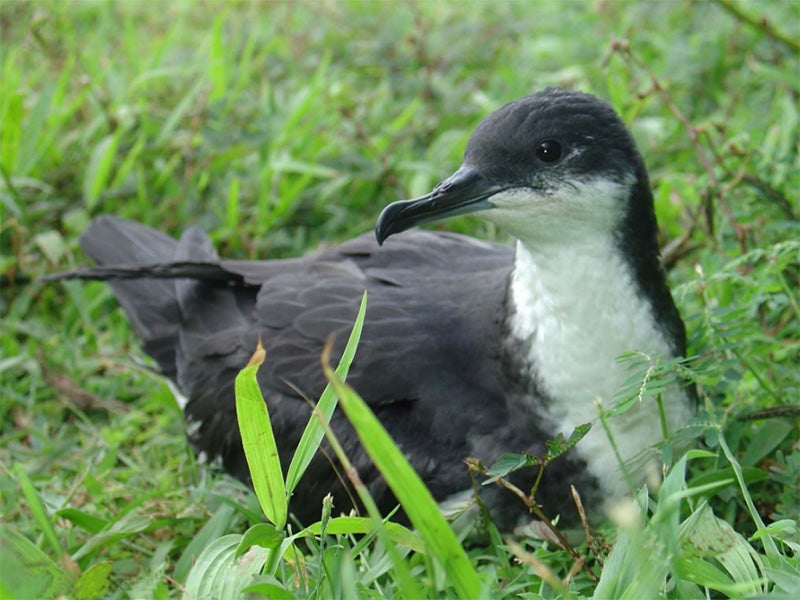Lawsuit Launched to Stop Hawai‘i’s Airport, Harbor Lights From Killing Rare Seabirds
State facilities contributing to massive decline in three imperiled species
Contact
Conservation groups today filed a formal notice of intent to sue the Hawaiʻi Department of Transportation for failing to prevent bright lighting at state-operated airports and harbors on Kauaʻi, Maui and Lānaʻi from causing injuries and death to three species of critically imperiled seabirds.
The Newell’s shearwater is a threatened species, and Hawaiian petrels and band-rumped storm petrels in Hawaiʻi are endangered species. According to today’s notice from Hui Hoʻomalu i Ka ʻĀina, Conservation Council for Hawaiʻi, and the Center for Biological Diversity, represented by nonprofit law firm Earthjustice, the department’s failure to protect these native seabirds from harmful operations at its facilities violates the federal Endangered Species Act.
“Since ancient times, Hawaiian fishermen have looked to the ʻaʻo (Newell’s shearwater) to help them find fish,” said Kauaʻi fisherman Jeff Chandler of Hui Hoʻomalu i Ka ʻĀina, which works to protect cultural and natural resources. “They’re an important part of our culture, and the Department of Transportation needs to take seriously its kuleana (responsibility) to protect them.”
The seabirds circle the bright lights at the department’s facilities until they fall to the ground from exhaustion or crash into nearby buildings. Bright lights have contributed significantly to the catastrophic 94 percent decline in the population of threatened Newell’s shearwaters on Kauaʻi since the 1990s. They have also harmed endangered Hawaiian petrels, whose numbers on Kauaʻi have plummeted by 78 percent in the same period.
“Fixing the lights so these magnificent seabirds on the brink of extinction aren’t killed is completely feasible,” said Brian Segee, an attorney at the Center for Biological Diversity. “Instead, the department is doing everything in its power to avoid protecting these highly imperiled native Hawaiian birds. It’s worse than irresponsible—it’s unethical and illegal.”
Last October, the department abruptly broke off discussions with federal and state wildlife agencies regarding its participation in an island-wide habitat conservation plan to minimize and mitigate harm to the rare seabirds on Kauaʻi.
“By withdrawing from talks on Kauaʻi, the department left the County of Kauaʻi and private entities holding the bag to address harm from the airports and harbors, even though the department’s facilities are among the largest sources of illegal death and injury on the island,” said Marjorie Ziegler of Conservation Council for Hawaiʻi. “The department needs to fulfill its duty under Hawaiʻi’s constitution to conserve and protect our natural heritage, not stick its head in the sand and do nothing.”
The groups seek to compel the department to comply with its obligations under the Endangered Species Act to minimize and mitigate harm to the imperiled seabirds by securing incidental take permit coverage of its activities on all three islands. The Act requires that citizens provide 60 days advance notice before filing a lawsuit to address illegal activities.
“Time is running out for these rare and culturally important seabirds,” said David Henkin, an Earthjustice attorney representing the groups. “If the Hawaiʻi Department of Transportation continues to shirk its obligations under the Endangered Species Act, we’ll see them in court.”

Additional Resources
About Earthjustice
Earthjustice is the premier nonprofit environmental law organization. We wield the power of law and the strength of partnership to protect people's health, to preserve magnificent places and wildlife, to advance clean energy, and to combat climate change. We are here because the earth needs a good lawyer.